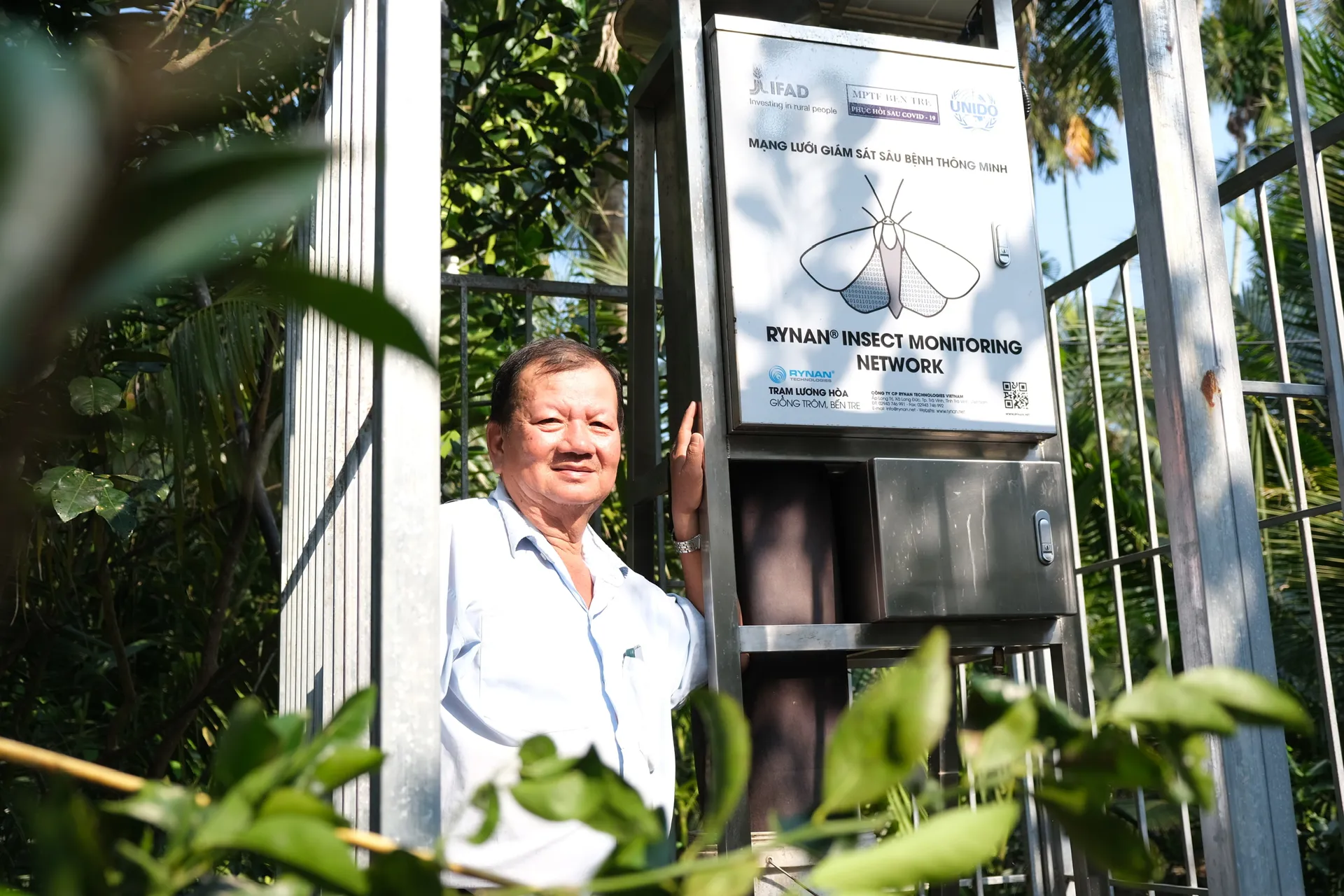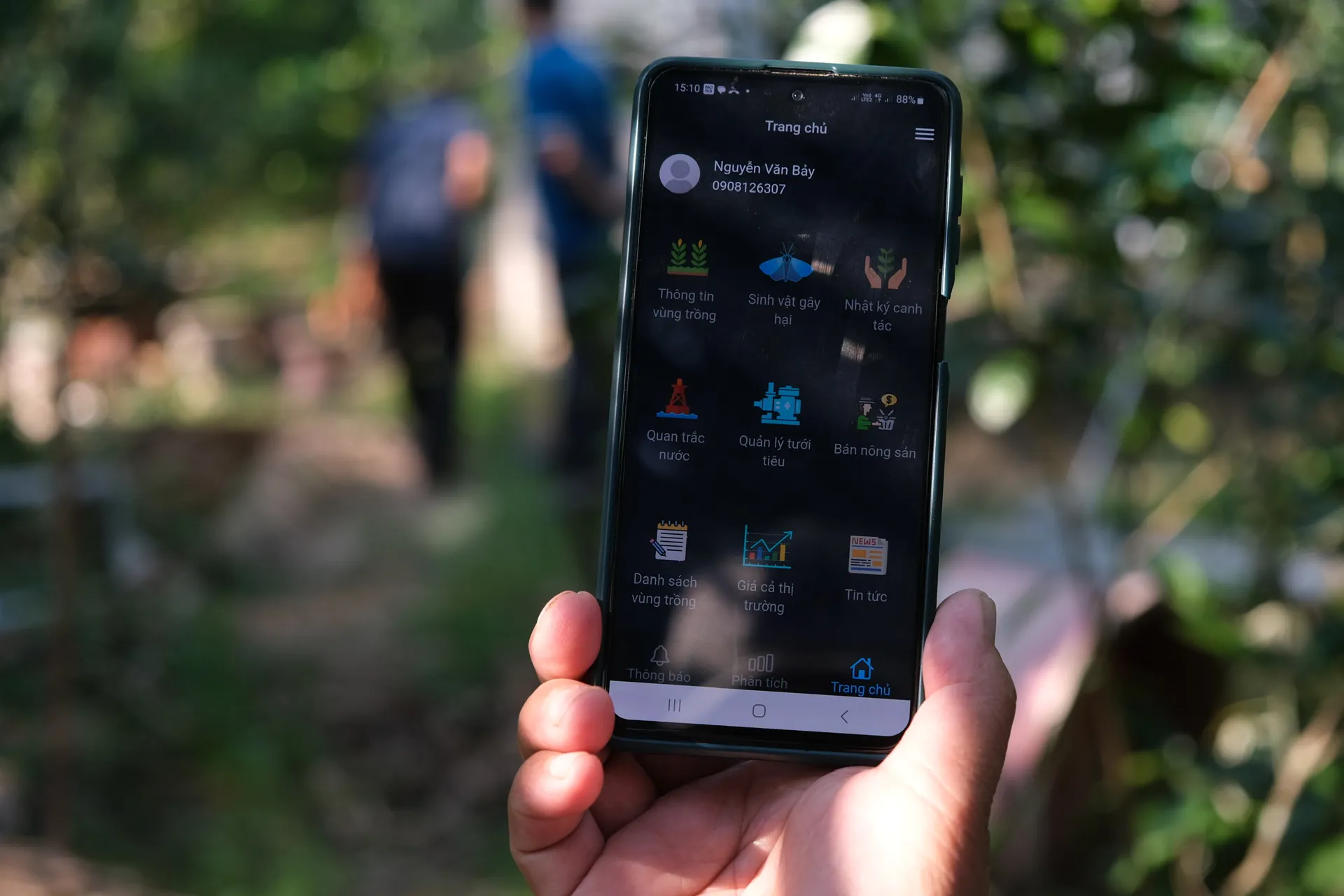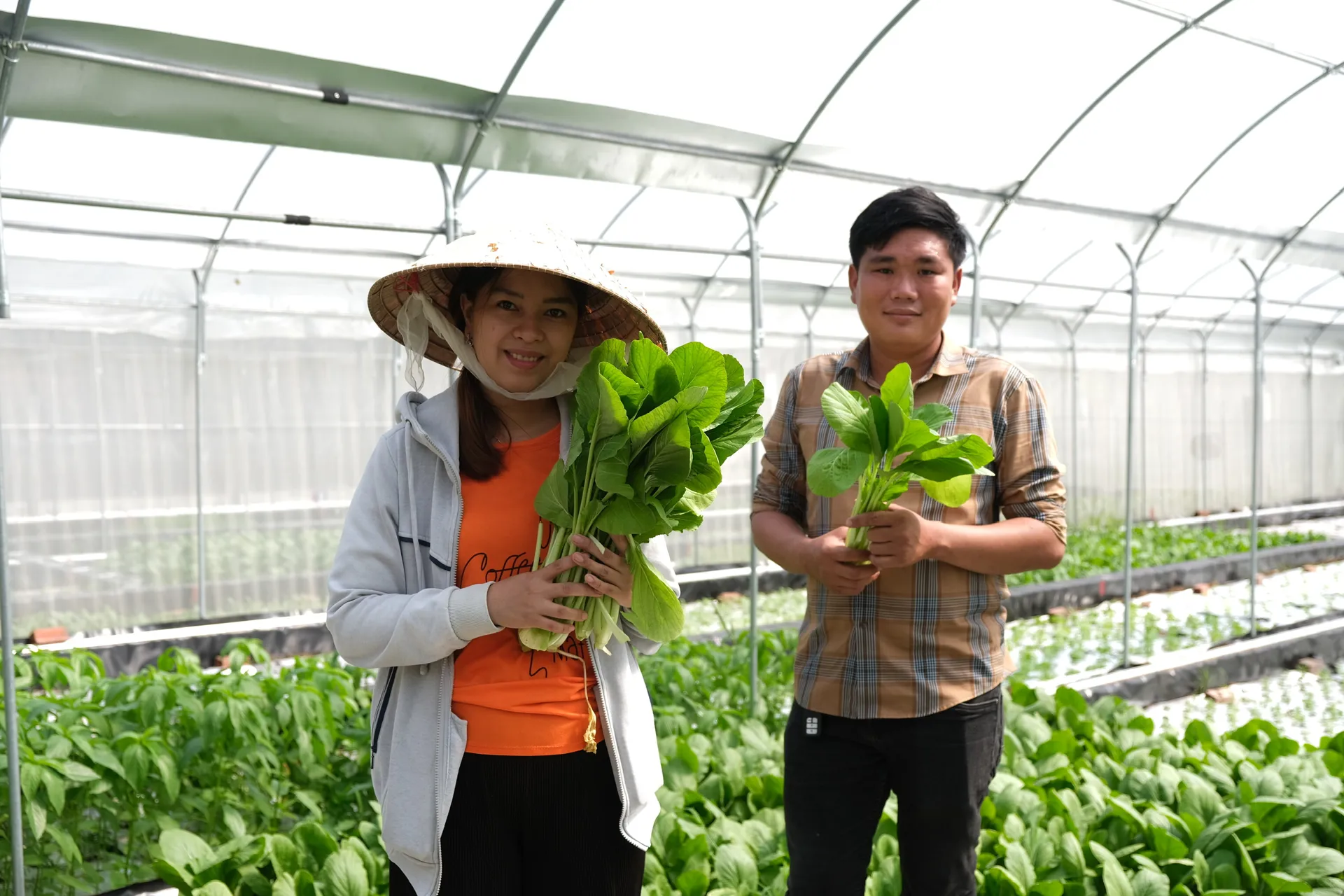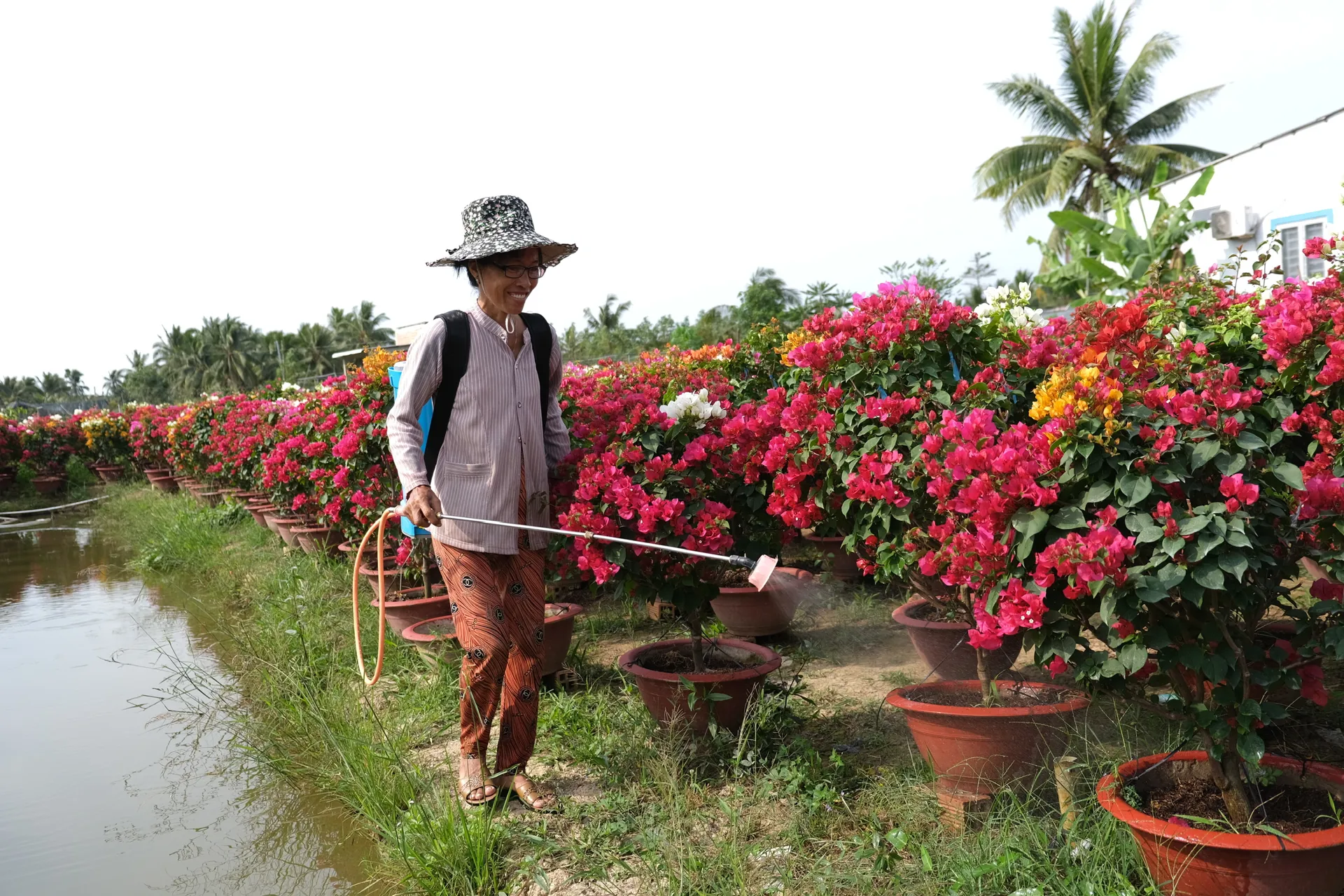Financing the Future: A breakthrough climate initiative for the Mekong Delta
Running through June 2029, IFIA will institutionalize innovative financing tools that scale coastal climate adaptation by engaging the private sector, expanding financial products and advancing climate-resilient practices in eco-aquaculture, eco-tourism and sustainable mangrove management.
The International Fund for Agricultural Development (IFAD) has launched a US$5-million climate-finance project in the Mekong Delta to help small-scale producers, ethnic minorities and young people adapt to rising climate threats.

With access to innovative financing instruments, farmers will be able gather critical agricultural information, bridging traditional farming with adaptive technologies. Photos: Hoang Pham/IFAD
The project, rolled out on November 12 in the southern province of Vinh Long, aims to test and scale new financial models that strengthen climate-resilient livelihoods in one of Vietnam’s most vulnerable regions.
Ambrosio Barros, IFAD’s Country Director for Vietnam, said this project is a blueprint for inclusive climate finance.
“We are investing in solutions that work for both farmers and ecosystems. From participatory research grants to tailored financial products, IFIA is designed to be scalable, replicable and transformative,” Barros shared with The Hanoi Times.
The Mekong Delta, one of Vietnam’s most productive and biodiverse regions, has long been the country’s food basket and ecological treasure. Its wetlands, mangrove forests and fertile farmlands sustain millions of people.
Yet rising sea levels, saltwater intrusion, and erratic weather patterns brought on by climate change increasingly threaten the region.
For this reason, safeguarding the delta’s ecosystems and the livelihoods they support has never been more urgent.

Beneficiaries will utilize innovative financial mechanisms from the IFIA project to enhance pest management and secure healthier crops.
The Innovative Financial Incentives for Adaptation in Wetland Livelihoods (IFIA) project was developed with the Ministry of Agriculture and Rural Development and the Vinh Long Provincial People’s Committee.
“This project empowers our communities to lead the way in climate adaptation. It strengthens local economies while protecting natural resources,” said Nguyen Truc Son, Vice Chairman of the Vinh Long Provincial People’s Committee.
IFIA focuses on three core areas, namely eco-aquaculture, eco-tourism and sustainable mangrove forest management. It tests and scales innovative financing models to help local producers access capital, adopt adaptive technologies and integrate into climate-smart and environmentally sustainable value chains.
Martina Dorigo, Portfolio Management Coordinator at the Adaptation Fund, highlighted that innovation is not only about financial products but also new ways of collaboration. “IFIA demonstrates how inclusive climate finance can deliver tangible resilience outcomes across Vietnam and the Asia-Pacific region,” she said.

Through the launch of the IFIA project, local farmers will gain skills and resources necessary for enhancing their livelihoods in the Mekong Delta.
The project complements the ongoing Climate Smart Agricultural Value Chain Development (CSAT) project, strengthening private sector engagement with small-scale producers to advance climate adaptation and innovation.
At the launch event in Vinh Long, national and provincial officials, farmers’ organizations, microfinance institutions, UN agencies and development partners discussed the project’s strategic direction and operational rollout.
They explored how innovative financing and policy reforms can protect wetlands and mangrove forests while sustaining the livelihoods that depend on them.
Anupa Rimal Lamichhane, IFAD Lead Regional Technical Specialist for Environment and Climate, said IFIA demonstrates how inclusive climate finance can transform local realities.
“By embedding environmental sustainability, gender equality and youth empowerment into its core design, the project paves the way for systemic change for small-scale producers and coastal communities,” she stated.
Nguyen My Hang, representing the Vietnam Agency of Seas and Islands under the Ministry of Agriculture and Environment, said that the project aligns with national priorities and requires strong partnerships.
She told The Hanoi Times that “No single actor can tackle climate impacts alone. Collaboration between government, IFAD and local communities ensures that resources, knowledge and innovations reach those who need them most.”

The IFIA project emphasizes the initiative's commitment to sustainable livelihoods and clean agricultural practices.
Local farmers expressed optimism about the project. Pham Van Chi from the Aquaculture, Fisheries and Tourism Cooperative Group in Con Phung Islet, Vinh Long, said: “For us, adaptation is survival. With IFIA, we see hope, new ways to farm, new markets and new opportunities for our young farmers and women.”
Running through June 2029, IFIA will pilot, systematize and institutionalize innovative financing tools to scale climate adaptation in coastal livelihoods.
The project incentivizes private sector collaboration, promotes new financial products and supports climate-resilient practices in eco-aquaculture, eco-tourism and sustainable mangrove management.
IFAD has been a key partner in Vietnam’s rural development since 1993, financing 16 projects with over US$670 million invested.
Its work has reached more than half a million rural households and focused on empowering smallholder farmers, ethnic minorities, women and youth while fostering innovation, green finance and climate-resilient livelihoods.
By combining financial innovation, environmental stewardship and community empowerment, IFIA safeguards the Mekong Delta’s future and serves as a model for inclusive, climate-smart development across Vietnam.








